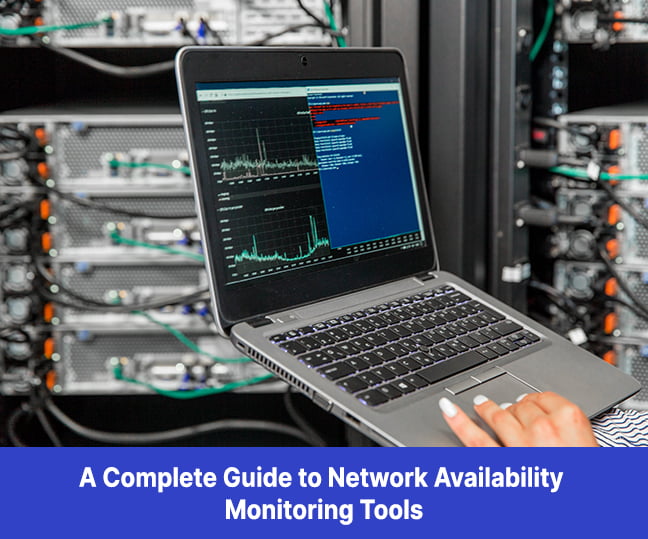Managed Service Providers (MSPs) have traditionally assisted clients in managing IT systems through manual processes and conventional technology. The approach often involved time-intensive tasks, hands-on troubleshooting, and reactive problem-solving. However, the integration of Artificial Intelligence (AI) and automation, with technologies like Machine Learning (ML) and Natural Language Processing (NLP), has streamlined and enhanced the execution of IT management.
Impact of AI and Automation on MSP Operations
Asset management
AI in asset management transforms how MSPs handle hardware and software assets. Predictive analytics and machine learning algorithms analyze usage patterns and operational data to forecast equipment failures. By scheduling proactive maintenance, MSPs can avert potential outages and extend asset life, enhancing overall operational performance.
For instance, AI can monitor a network server’s performance metrics, predicting potential hardware failures before they occur. This allows MSPs to replace or repair parts preemptively, avoiding unexpected downtime and maintaining consistent network availability.
Related blog Adapting to Remote Work: The Future of MSPs in a Decentralized Workforce
Incident and problem management
AI and automation revolutionize incident and problem management by identifying patterns that may indicate underlying system issues. By addressing these issues proactively, MSPs can greatly reduce the likelihood of service disruptions and repeat incidents, enhancing system reliability and client satisfaction.
An AI system could analyze server logs to identify recurring issues, such as memory leaks in a particular application. By flagging this pattern, MSPs can address the root cause, perhaps through a software update, before it leads to broader system failures.
SLA management
AI-driven SLA management tools can mine historical data to identify patterns that might lead to SLA breaches. This predictive analysis enables MSPs to preemptively address potential issues, ensuring higher compliance rates and client satisfaction.

An AI system could analyze ticket resolution times and predict when a current ticket might risk breaching its SLA, allowing the MSP to allocate additional resources or escalate the issue to ensure timely resolution.
Change management
In change management, AI and automation offer dynamic workflows, adapting in real-time to various factors. This adaptability ensures that changes are implemented without introducing risks, leading to more successful and less disruptive updates.
AI can be used to simulate the impact of a proposed network change, predicting potential bottlenecks or conflicts. This simulation helps in formulating a risk-free implementation strategy.
Knowledge management
AI algorithms enhance knowledge management systems used by MSPs. They enable the quick organization and retrieval of information, leading to faster resolution of client issues and more informed decision-making processes.
An AI-driven system could analyze past incident reports and solutions to provide recommendations for resolving new, similar incidents, thereby reducing the time to resolution.
Event management
AI in event management automates the monitoring of IT infrastructure, responding in real-time to events. This comprises resource adjustment based on demand fluctuations or immediate responses to security threats, maintaining system stability and security.
AI tools can monitor network traffic for unusual patterns, automatically triggering security protocols if a potential threat is detected, such as a DDoS attack.
Service request management
Automated service request management systems streamline the entire process, from request logging to resolution. This includes automated ticket assignment, status updates, and tracking, ensuring a more transparent process for clients.
An automated system might route tickets based on the expertise required, ensuring that each request is handled by the most qualified personnel, leading to faster resolutions.
Benefits of AI and Automation for MSPs
Saved time
The implementation of AI and automation technologies reduces the time spent on routine and repetitive IT management tasks. Automation algorithms can handle tasks such as system monitoring, alerting, and basic troubleshooting without human intervention. This allows MSP staff to dedicate more time to strategic projects and complex problem-solving, thereby enhancing overall service delivery and innovation.
Reduced operational costs
The deployment of AI and automation in MSP operations leads to a noticeable reduction in operational costs. Automated systems require less human intervention, reducing labor costs, and they operate with higher efficiency, which minimizes resource wastage. In addition, predictive maintenance enabled by AI reduces the likelihood of costly system failures and downtime, contributing to overall cost savings.
Process optimization
Automation in MSP services optimizes various processes by standardizing workflows and reducing the likelihood of human error. This includes automating routine checks, patch management, and compliance monitoring, ensuring consistent and error-free execution. Process optimization also contributes to higher service standards, as tasks are completed more quickly and with fewer mistakes.
Customer retention
The improved service quality and responsiveness achieved through AI and automation play a meaningful role in enhancing customer satisfaction and loyalty. AI-driven analytics can provide insights into customer usage patterns and predict issues before they impact the customer, allowing MSPs to provide more personalized and proactive services, which is key to retaining clients in a competitive market.
Team productivity
The integration of AI and automation frees MSP teams from the burden of repetitive and mundane tasks, resulting in higher productivity. Staff can manage more clients or focus on more impactful work, such as strategic planning or custom solution development. This shift increases team morale and enables MSPs to scale their services.
Improved service quality
AI and automation contribute to improved service quality in several ways. AI-driven tools can analyze vast amounts of data to identify trends and predict issues, leading to quicker and more accurate resolutions. Automation ensures that routine tasks are performed consistently and without delay, enhancing the overall reliability and performance of IT services.
More security
AI enhances security protocols by enabling more timely monitoring, threat detection, and response. AI algorithms can analyze patterns in network traffic to identify potential threats, automate responses to common security incidents, and provide actionable insights for more complex threats. This proactive approach to security helps in safeguarding client data and systems against increasingly sophisticated cyber threats.
Conclusion
In conclusion, the integration of Artificial Intelligence (AI) and automation technologies has significantly transformed Managed Service Providers (MSPs) operations. From asset management to incident resolution, SLA management, change management, knowledge management, event management, and service request handling, AI has streamlined processes, improved efficiency, and enhanced overall service quality.
The benefits include time savings, reduced operational costs, process optimization, improved customer retention, increased team productivity, and heightened security measures. The adoption of AI and automation allows MSPs to focus on strategic initiatives and deliver more personalized, proactive, and reliable services in an ever-evolving IT landscape.




















